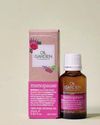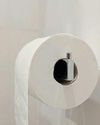The chemicals in everyday household cleaning products are a poorly scrutinised health hazard. Fortunately, more of us are rediscovering the natural cleaning methods our great-grandparents once used.

Supporting a global industry worth tens of billions of dollars, our quest for sparklingly clean, sweet-smelling homes has spawned a vast array of products. But dig beneath the familiar, friendly packaging and marketing claims so many of us inherently trust and you’ll find a scourge of chemical irritants, toxins and carcinogens. Ranging from petrochemical surfactants and solvents to antibacterials, fungicides and synthetic fragrances, most of these ingredients are unlisted and untested. As they say, out of sight, out of mind.
An unregulated industry
There’s no legal requirement for the ingredients in cleaning products (technically classified as industrial chemicals) to be listed on the container, says Jo Immig, co-ordinator of the National Toxics Network. “It may tell you some generic chemical class but won’t specifically list all the ingredients,” she says.
Highly toxic products like bleach might have a warning label on them, but with some 30,000 chemicals in Australia never having been assessed by the regulator, it’s important to be cautious, Immig advises. There’s actually no regulation of individual cleaning products. “No one is regulating the product, just some of the individual chemical ingredients in it,” she says. “We don’t know exactly what happens in terms of longterm health impacts when you put them all together in a product.”
Telltale warning signs might include words like “corrosive”, “danger”, “poison”, “may cause burns”, “flammable”, or “vapours harmful”. Other helpful labels include “phosphate-free”, “no solvents” and “plant-based ingredients”.
Health hazards
Esta historia es de la edición WellBeing #180 de WellBeing.
Comience su prueba gratuita de Magzter GOLD de 7 días para acceder a miles de historias premium seleccionadas y a más de 9,000 revistas y periódicos.
Ya eres suscriptor ? Conectar
Esta historia es de la edición WellBeing #180 de WellBeing.
Comience su prueba gratuita de Magzter GOLD de 7 días para acceder a miles de historias premium seleccionadas y a más de 9,000 revistas y periódicos.
Ya eres suscriptor? Conectar

YOGA FOR IMPERFECTION
Life is messy and we all make mistakes, but by embracing imperfection, we can begin to accept all parts of ourselves.

Creating the foundations of ritualist self-care
As a busy mum of a three-year-old and expecting another baby, finding time for self-care often feels like a luxury.

Are you doom spending?
If \"doom spending\" has become your go-to for coping with stress, you could be making withdrawals from not just your bank account, but your health too.

THE POWER OF music
Most of us enjoy music. But science shows music is central to being human and its effect on us is far more astonishing and impactful than we realise. Music is fundamental to life.

SYNTHETIC FOODS
Synthetic, or genetically modified, fake meats and the like attempt to mimic real meat in both looks, taste and texture. But how much do we really know about the production process and how do they affect the environment and our bodies?

Embracing the power of nature
Menopause is more than just a biological change, it represents a significant life stage that can present numerous challenges - from hot flushes and mood swings to fatigue and sleepless nights.

Jan Fran
From a young age, Jan Fran's deep curiosity and keen interest in social issues sparked her journey into the world of journalism. As an accomplished journalist, media commentator and broadcaster, Fran's passion for storytelling has always been driven by a desire to explore, question and shed light on the world around her.

Helping teen girls thrive
Statistics reveal that many more teen girls are struggling with mental health issues. What's going on with them? More importantly, what can we do to help them flourish?

Your ageing eyes
Your eyes work hard for you every waking minute. It is no surprise that how your eyes age will be determined by how you protect them. Eating the right foods can go along way towards ensuring that your eyes stay healthy for a lifetime.

The bottom line
During the Couid pandemic, we were shocked to see people fighting in supermarkets over toilet paper and to see empty shelves that had once held roll after roll. The reasons behind the run for toilet paper during this time reflect the unique place that it holds in our psyche and are deeply rooted in our history.